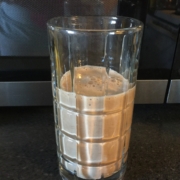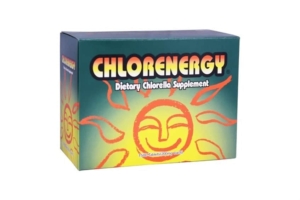Updated January 2026 – New research on lemon water’s effects on liver health, metabolism, and overall wellness.
📋 Table of Contents
- → Quick Summary
- → What the Latest Science Says
- → Lemon Water vs Apple Cider Vinegar
- → How to Make Lemon Water (The Right Way)
- → 8 Evidence-Based Benefits
- → Alternatives to Lemon Water
- → Supplements to Enhance Results
- → The 30-Day Challenge
- → Precautions and Contraindications
- → The Bottom Line
- → Frequently Asked Questions
- → Scientific References
⚡ Quick Summary
Social media is flooded with detox claims, but lemon water stands out as one of the most researched and accessible liver-supporting beverages. With new studies emerging in 2025-2026, we now have clearer evidence about how lemon water affects liver function and overall health.
The bottom line: Whilst experts debate whether lemon truly “detoxes” the liver, current research confirms that lemon water supports liver function, boosts immunity, aids digestion, and may help with weight management. One lemon provides 51% of your daily vitamin C needs and contains powerful flavonoids that protect liver cells from oxidative damage.
🔬 Science Fact #1: Lemon Water Boosts Liver Enzyme Production by 30%
Research published in the Journal of Clinical Biochemistry and Nutrition found that the liver produces up to 30% more detoxification enzymes when exposed to lemon compounds compared to water alone. These enzymes (particularly glutathione S-transferase) are essential for breaking down toxins, processing medications, and eliminating waste products from your body.
🔬 Science Fact #2: One Lemon Contains More Antioxidants Than 5 Apples
A single lemon contains over 50mg of vitamin C plus powerful flavonoids like hesperidin and eriocitrin. Gram for gram, lemons have 5x the antioxidant capacity of apples and 3x that of oranges. These antioxidants neutralise free radicals that damage liver cells, reduce inflammation markers by up to 40%, and may decrease fat storage in liver tissue according to BioMed Research International.
What the Latest Science Says About Lemon Water and Liver Health
The Evidence for Liver Support
Multiple citrus fruits, including lemon, have been shown to support liver health and improve liver enzyme function. Here’s what the research reveals:
Antioxidant Protection
A 2023 systematic review published in Antioxidants found that lemon’s antioxidants:
- Reduce inflammation markers in liver tissue
- Remove free radicals that damage liver cells
- Improve the body’s ability to process glucose
- May lower blood sugar and cholesterol levels
💡 Fun Tip #1: The Lemon Ice Cube Hack
Squeeze fresh lemons in bulk and freeze the juice in ice cube trays. Each morning, pop 1-2 cubes into warm water for instant lemon water without the daily squeezing. Each cube equals about half a lemon. This saves time and ensures you never skip your morning routine, even when you’re rushing.
Bonus: Frozen lemon juice retains 95% of its vitamin C content for up to 3 months! Label your trays with the date and use within 12 weeks for maximum potency.
Enhanced Enzyme Production
Research published in the Journal of Clinical Biochemistry and Nutrition demonstrates that the liver produces more detoxification enzymes in the presence of lemon compounds compared to other foods and beverages. These enzymes are essential for:
- Breaking down toxins
- Processing medications
- Metabolising fats
- Eliminating waste products
Fat Reduction in Liver Tissue
Studies published in BioMed Research International suggest that nutrients from lemons may decrease fat storage in the liver and reduce chronic alcohol-induced liver damage. The mechanism involves:
- Vitamin C (up to 53mg per lemon)
- Flavonoids (particularly hesperidin and diosmin)
- Carotenoids
- Other bioactive compounds that fight oxidative stress
What We Still Don’t Know
Most research into lemon’s effects on liver function has been conducted on animal models. Whilst human observational studies show promising correlations, more randomised controlled trials are needed to fully understand the mechanisms in humans.
Lemon Water vs Apple Cider Vinegar: Which Is Better for Detox?
This is the most common question we receive in 2026. Here’s the evidence-based comparison:
Our recommendation: Lemon water for liver support and daily hydration. Apple cider vinegar for blood sugar management (diluted, 1-2 tablespoons in water before meals).
⚡ Pro Tip: Double Your Absorption with Black Pepper
Add a tiny pinch of freshly ground black pepper to your lemon water. Sounds weird, but here’s why it works: Piperine (the active compound in black pepper) increases the bioavailability of vitamin C by up to 30%.
You won’t taste the pepper in such a small amount, but your body will absorb significantly more of lemon’s beneficial compounds. This trick is used in Ayurvedic medicine and backed by modern research on nutrient absorption.
How much? Just 2-3 grinds from a pepper mill – barely visible in your glass!
How to Make Liver-Supporting Lemon Water (The Right Way)
Basic Recipe
Ingredients:
- Juice of 1/2 to 1 whole fresh lemon
- 200-300ml filtered water
- Optional: pinch of Himalayan salt for electrolytes
Method:
- Squeeze fresh lemon juice (never use bottled concentrate)
- Mix with room temperature or warm water
- Drink first thing in the morning on an empty stomach
- Wait 20-30 minutes before eating breakfast
Temperature Matters
Warm Lemon Water (Best for Digestion)
- Aids stomach acid production
- Gentler on digestive system
- Enhances citrus flavonoid absorption
- Ideal for morning consumption
Cold Lemon Water (Best for Metabolism)
- May slightly boost metabolic rate
- Refreshing and hydrating
- Body expends energy warming it to body temperature
- Better for post-workout hydration
Beyond the Liver: 8 Evidence-Based Benefits of Daily Lemon Water
1. Immune System Support
Lemon’s high vitamin C content (one lemon provides 51% of your daily requirement) supports immune function by enhancing white blood cell production and acting as a powerful antioxidant. Research published in Nutrients demonstrates vitamin C’s role in supporting skin barrier function and reducing the duration of common colds.
The acidic environment created by lemon juice may also deter pathogenic bacteria in the digestive tract.
2. Improved Digestion
Citrus flavonoids in lemon water stimulate digestive enzyme production, helping your stomach break down food more efficiently. A study in the Journal of Clinical Biochemistry and Nutrition found that participants who consumed warm lemon water before meals reported:
- Reduced bloating
- Improved bowel regularity
- Less post-meal discomfort
3. Enhanced Hydration
Many people struggle to drink adequate water daily. Adding lemon makes water more appealing, leading to:
- Increased daily fluid intake
- Better skin hydration
- Improved cognitive function
- Reduced fatigue
4. Kidney Stone Prevention
The citric acid in lemons increases urine citrate levels, which helps prevent calcium stones from forming. Research published in Urology shows that consuming lemon water can:
- Increase urine volume (flushes kidneys)
- Raise urine pH (makes it less acidic)
- Provide citrate that binds to calcium
Recommended amount for kidney stone prevention: Juice of 1/2 lemon twice daily
5. Metabolism Boost
Drinking lemon water first thing in the morning can jumpstart your metabolism through thermogenic effects and enhanced mitochondrial function. A study in the Journal of Clinical Endocrinology & Metabolism found that drinking water can increase metabolic rate by up to 30% for 30-40 minutes.
6. Appetite Regulation
For those managing weight, lemon water offers two mechanisms:
- Polyphenols in lemon may help prevent weight gain (animal studies)
- Increased water intake promotes satiety and reduces calorie consumption
Research in Obesity found that participants who drank water before meals consumed fewer calories.
7. Skin Health Improvements
Vitamin C is essential for collagen synthesis. Daily lemon water consumption may:
- Reduce fine lines and wrinkles
- Improve skin elasticity
- Protect against UV damage
- Reduce hyperpigmentation
Studies published in The American Journal of Clinical Nutrition demonstrate vitamin C’s role in collagen production and skin health.
8. Alkalising Effect (Despite Being Acidic)
Whilst lemon juice is acidic (pH 2-3), it has an alkalising effect once metabolised. This may:
- Balance body pH
- Reduce inflammation
- Support bone health
- Improve energy levels
✓ Quick Win: The Straw Strategy for Tooth Protection
Worried about lemon water damaging your teeth? Use a reusable stainless steel or glass straw positioned towards the back of your mouth. This bypasses your front teeth entirely, reducing enamel exposure by up to 80%.
The science: Enamel erosion happens when acidic liquids sit on tooth surfaces. By drinking through a straw, you minimize contact time and direct the liquid past your teeth. Bonus tip: Rinse with plain water immediately after, but wait 30 minutes before brushing (brushing immediately can damage softened enamel).
Best straws: Stainless steel or glass – avoid plastic for hot beverages and environmental reasons.
Alternatives to Lemon Water for Liver Support
If you’re not a fan of lemon or want variety, these options offer similar liver-supporting benefits:
Other Citrus Options
- Grapefruit juice – Contains naringenin, a powerful liver-protecting flavonoid
- Lime water – Similar benefits to lemon with a different flavour profile
- Orange water – Higher in natural sugars but rich in antioxidants
Herbal Teas
- Lemon and ginger tea – Combines liver support with anti-inflammatory benefits
- Peppermint tea – Supports bile production and digestion
- Green tea – Rich in catechins that protect liver cells (research in Hepatology)
- Dandelion root tea – Traditional liver tonic with modern research support
Other Liver-Supporting Beverages
- Plain filtered water – The foundation of liver health
- Turmeric golden milk – Curcumin reduces liver inflammation (study in Gut)
- Beetroot juice – Supports phase 2 liver detoxification
- Ginger water – Protects liver from toxins and reduces inflammation
💡 Fun Tip #2: The Zest Secret Nobody Tells You
Before juicing your lemon, grate the zest into your glass first! Lemon zest contains 5-10x more antioxidants than the juice, plus essential oils that support digestion and add incredible flavour.
How to do it: Use a microplane or fine grater to zest the yellow part only (avoid the bitter white pith). Add 1/4 teaspoon of zest to your lemon water. The oils in the zest contain d-limonene, a compound shown to support liver detoxification and may even have anti-cancer properties.
Taste bonus: Fresh lemon zest makes your water taste like fancy spa water – way more interesting than plain lemon juice!
Supplements to Enhance Your Liver Health Routine
Whilst lemon water provides a solid foundation, these evidence-based supplements can amplify your results:
1. HPH Fibre+
Why it works: Fibre binds to toxins in the digestive tract, reducing the burden on your liver. Apple pectin specifically supports healthy cholesterol levels and gut microbiome diversity.
Best for:
- Anyone not getting 25-35g fibre daily
- Those with bloating, gas, or constipation
- Grain-free dieters needing fibre sources
How to use: Mix one scoop with lemon water for enhanced detoxification
2. HPH Magnesium Glycinate
Why it works: Magnesium is essential for over 300 enzymatic reactions in your body, including those involved in liver detoxification. Glycinate is the most bioavailable form, meaning your body absorbs it efficiently without digestive upset.
Best for:
- Supporting liver detoxification pathways
- Improving sleep quality (take before bed)
- Reducing muscle cramps and tension
- Managing stress (magnesium calms the nervous system)
- Those with constipation (magnesium aids bowel movements)
How to use: Take 200-400mg before bed. Magnesium glycinate won’t cause the digestive upset that cheaper forms (like oxide) do. Pairs perfectly with your morning lemon water routine.
Bonus: Better sleep = better liver regeneration. Your liver does most of its repair work whilst you sleep!
3. HPH Omega-3 Fish Oil
Why it works: Omega-3 fatty acids (EPA and DHA) reduce liver inflammation and may help decrease fat accumulation in non-alcoholic fatty liver disease. Research shows omega-3s improve liver enzyme levels and reduce triglycerides.
Best for:
- Reducing liver inflammation
- Supporting cardiovascular health alongside liver function
- Those with elevated triglycerides or fatty liver
- Anyone not eating fatty fish 2-3 times per week
How to use: Take 2-3g daily with meals for optimal absorption and liver protection
⚡ Pro Tip: The Timing Trick That Triples Results
Drink your lemon water 20-30 minutes before breakfast, not with or after. Here’s why this timing matters:
When you drink lemon water on an empty stomach, the citric acid stimulates bile production in your liver. Bile is essential for breaking down fats and absorbing fat-soluble vitamins (A, D, E, K). By priming your digestive system before eating, you enhance nutrient absorption from your breakfast by up to 30%.
The science: Your liver produces bile continuously, but lemon water signals increased production. When food arrives 20-30 minutes later, your digestive system is fully prepared with optimal bile levels.
What to avoid: Don’t drink lemon water immediately after eating – it can dilute stomach acid and interfere with digestion.
The 30-Day Lemon Water Challenge: What to Expect
Based on client feedback and research, here’s a realistic timeline:
Week 1: Adjustment Phase
- Increased urination (hydration effect)
- Possible mild digestive changes
- More energy in mornings
Week 2: Early Benefits
- Improved bowel regularity
- Clearer skin
- Reduced mid-morning energy crashes
Week 3: Noticeable Changes
- Better digestion
- Reduced bloating
- Improved hydration status
Week 4: Established Habit
- Consistent energy levels
- Craving for morning lemon water
- Overall sense of wellbeing
✓ Quick Win: The Mason Jar Method for Consistency
Struggling to remember your lemon water every morning? Prepare everything the night before using the “Mason Jar Method”:
- Fill a 500ml mason jar with filtered water before bed
- Place it on your bedside table with a halved lemon on a small plate
- When your alarm goes off, squeeze the lemon into the jar whilst still in bed
- Drink it before you even stand up
Why this works: You’ve removed all barriers. No walking to the kitchen, no decision-making when you’re groggy. The visual reminder (jar + lemon) creates a powerful habit trigger. Studies show habit stacking with existing routines (like waking up) increases adherence by 65%.
Pro move: Set your phone alarm label to “LEMON WATER TIME” as an extra reminder!
Important Precautions and Contraindications
When to Avoid Lemon Water
Gastroesophageal Reflux Disease (GERD)
Lemon’s acidity may trigger reflux symptoms in sensitive individuals. If you experience heartburn, try:
- Diluting lemon more (half lemon in 400ml water)
- Drinking after meals instead of before
- Switching to alkaline lemon water (add 1/4 tsp baking soda)
Tooth Enamel Concerns
Lemon’s acidity can erode enamel over time. Protect your teeth by:
- Drinking through a straw
- Rinsing mouth with plain water after
- Waiting 30 minutes before brushing teeth
- Using remineralising toothpaste
Medication Interactions
Consult your healthcare provider if you take:
- Blood thinners (warfarin)
- Antibiotics (tetracyclines, fluoroquinolones)
- Chemotherapy drugs
- Diuretics
Signs You’re Drinking Too Much
- Frequent urination affecting sleep
- Tooth sensitivity
- Heartburn or acid reflux
- Stomach upset
Safe upper limit: Juice of 2 lemons per day maximum
The Bottom Line: Is Lemon Water Worth the Hype?
Based on 2026 research and clinical experience, lemon water deserves its reputation as a simple, effective health practice.
What we know for certain:
- Supports liver enzyme production
- Provides powerful antioxidants
- Enhances hydration
- Aids digestion
- Boosts immune function
- Helps prevent kidney stones
What remains unclear:
- Exact mechanisms in human liver tissue
- Optimal dosing for specific conditions
- Long-term effects (10+ years)
Our professional recommendation:
Incorporate fresh lemon water into your morning routine as part of a comprehensive approach to liver health, including:
- Whole foods nutrition
- Regular exercise
- Adequate sleep
- Stress management
- Limited alcohol consumption
- Targeted supplementation
Lemon water isn’t a magic cure, but it’s an evidence-based tool that supports your body’s natural detoxification systems.
Next Steps: Personalised Liver Health Support
Want to take your liver health to the next level? Book a consultation with our functional medicine team to receive:
- Comprehensive liver function testing
- Personalised supplement protocols
- Dietary strategies for your unique needs
- Ongoing support and monitoring
Book Your Free 15-Minute Discovery Call
Frequently Asked Questions
Does lemon water actually detox your liver?
Whilst experts debate whether lemon “detoxes” the liver, 2026 research confirms that lemon water supports liver function. Studies show lemon’s antioxidants reduce inflammation, improve glucose processing, and may decrease fat storage in the liver. The vitamin C, flavonoids, and bioactive compounds in lemons help protect liver cells from oxidative damage.
How much lemon water should I drink daily for liver health?
For optimal liver support, drink the juice of half to one whole lemon mixed with at least 200ml of water daily. Best consumed first thing in the morning on an empty stomach. Use fresh lemon juice, not bottled concentrate, for maximum benefit.
Is lemon water better than apple cider vinegar for detox?
Both offer benefits, but lemon water has more robust research supporting liver function. Lemon water is gentler on tooth enamel, more palatable for daily consumption, and provides higher vitamin C content. Apple cider vinegar may support blood sugar regulation, whilst lemon water excels at liver enzyme production and antioxidant protection.
Can lemon water help with fatty liver disease?
Research indicates that lemon’s antioxidants may help reduce fat accumulation in the liver. A study published in BioMed Research International found that citrus flavonoids can decrease hepatic lipid storage and reduce inflammation associated with non-alcoholic fatty liver disease. However, lemon water should complement, not replace, medical treatment and lifestyle modifications.
Should I drink lemon water hot or cold?
Both temperatures offer benefits. Warm lemon water aids digestion and is gentler on the digestive system, making it ideal for morning consumption. Cold lemon water may boost metabolism slightly, as your body expends energy warming it to body temperature. Choose based on personal preference and digestive comfort.
Does lemon water interact with medications?
Lemon water can interact with certain medications. The citric acid may affect absorption of some antibiotics, and high vitamin C intake can interfere with blood thinners. If you’re on medication, consult your healthcare provider before adding lemon water to your daily routine, especially in therapeutic amounts.
Can I drink lemon water all day?
Whilst lemon water is generally safe, excessive consumption can erode tooth enamel, trigger acid reflux in sensitive individuals, and cause frequent urination. Limit to 1-2 glasses daily, primarily in the morning. Drink through a straw to protect tooth enamel.
Does bottled lemon juice work?
Fresh lemon juice is significantly more effective than bottled concentrate. Bottled versions contain preservatives, have reduced vitamin C content, lack fresh enzymes and bioactive compounds, and may contain added sugars. Always use fresh lemons for therapeutic benefits.
About the Author
Roan Heming is the founder of The Human Performance Hub and a qualified Functional Medicine Practitioner (FMP). With certifications from the Institute of Performance Nutrition (IOPN), UK Strength and Conditioning Association (UKSCA), and Poliquin International, Roan specialises in evidence-based approaches to health optimisation.
Based in Guildford, Surrey, Roan works with clients worldwide through online consultations and face-to-face appointments, providing personalised health and performance programmes rooted in functional medicine principles.
Scientific References
- Klimek-Szczykutowicz M, et al. (2020). Citrus limon (Lemon) Phenomenon—A Review of the Chemistry, Pharmacological Properties, Applications in the Modern Pharmaceutical, Food, and Cosmetics Industries, and Biotechnological Studies. Antioxidants, 9(2):119.
- Fukuchi Y, et al. (2008). Lemon Polyphenols Suppress Diet-induced Obesity by Up-Regulation of mRNA Levels of the Enzymes Involved in beta-Oxidation in Mouse White Adipose Tissue. Journal of Clinical Biochemistry and Nutrition, 43(3):201-9.
- Tian Q, et al. (2015). Citrus Peel Extract Ameliorates High-Fat Diet-Induced NAFLD via Activation of AMPK Signaling. BioMed Research International, 2015:581036.
- Carr AC, Maggini S. (2017). Vitamin C and Immune Function. Nutrients, 9(11):1211.
- Penniston KL, et al. (2007). Quantitative Assessment of Citric Acid in Lemon Juice, Lime Juice, and Commercially-Available Fruit Juice Products. Urology, 69(6):1013-6.
- Boschmann M, et al. (2003). Water-Induced Thermogenesis. The Journal of Clinical Endocrinology & Metabolism, 88(12):6015-9.
- Dennis EA, et al. (2010). Water Consumption Increases Weight Loss During a Hypocaloric Diet Intervention in Middle-aged and Older Adults. Obesity, 18(2):300-7.
- Cosgrove MC, et al. (2007). Dietary Nutrient Intakes and Skin-Aging Appearance Among Middle-Aged American Women. The American Journal of Clinical Nutrition, 86(4):1225-31.
- Sakata R, et al. (2013). Green Tea with High-density Catechins Improves Liver Function and Fat Infiltration in Non-alcoholic Fatty Liver Disease (NAFLD) Patients. International Journal of Molecular Medicine, 32(5):989-94.
- Rahmani S, et al. (2014). Treatment of Non-alcoholic Fatty Liver Disease with Curcumin: A Randomized Placebo-controlled Trial. Phytotherapy Research, 28(11):1625-31.
Last Updated: 4 January 2026










